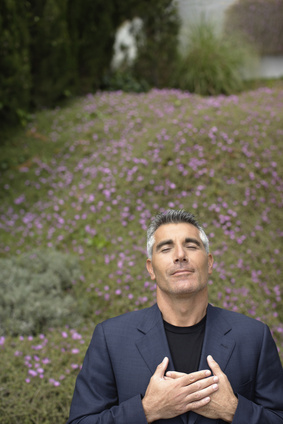
I talk to clients a lot about integrity. Since I do not believe I have the right to apply my morality or anyone else’s morality to another person, my goal as a therapist is for my clients to define and find the way for them to live in integrity, sexually and otherwise. But I realize maybe this a word we throw around without really diving in.
Integrity can be defined as the fairly ambiguous “having strong moral principles”. Ok, that can mean a lot of things. What I find is that many of us first need to establish –for ourselves – what exactly our moral principles are; then we can perhaps strengthen them. Integrity presupposes that we have come to terms with what is true and right for us and hopefully shed old shames that have been applied to us by others.
We use the word to apply to things we have built, implying that they are strong, sound, in good condition. Some people will define integrity as being honest, but I think that falls short.
The definition I like is this one – “The state of being whole and undivided’. This touches on the complexity of being a stand up human being, it allows for the fact that we may have differing parts, desires and needs that may sometimes confuse or conflict, but within our personal integrity we find ways to bring these things together, acknowledge them as part of us, and make a choice of what is best. I witness clients struggling with difficult choices prioritizing which value must take precedence at this time – do you honor the new passion you feel or a long-standing precious commitment? Do you honor a valued place in your community or a developing political statement? What you deeply want or what you believe to be right? This moment or a future plan? Integrity is not simple. It often requires that our perspectives change or develop. It can set us off balance as we search for a new balance.
This last definition also resonates with me as the feeling I have had when I am standing in integrity. I am not blindly following rules, I am full of awareness and in line with myself. I see that I have choice. And I have freedom in knowing I can simply show up with others because I am ok with my actions.
Consider how you interact and live your life differently when your conscience is clear, when you are at peace with yourself, undivided. How does this resonate within

In this April’s Elle Magazine there is a commentary on new consent laws, such as those enacted in California this year, defining true sexual consent as acknowledged by verbal consent. The woman writer, Cristina Nehring, claims that asking for verbal consent is the “death of eros”. She writes a lovely narrative about her first experience of seduction and also about the sometimes exciting blurring of lines that can arise when surrender and seduction are at play. But, her resistance to verbalizing “YES” during sex is deeply concerning to me as a sex therapist and educator. And what is even more concerning is that Ms Nehring’s opinion is one that I find more than a few women quietly hold.
Ms Nehring proudly closes her article with this statement : “I would never have pursued anything in love or bed had I been asked to consent to it in advance or explicitly name it afterwards.” The implication that she doesn’t find this troubling or sad, speaks volumes about still common attitudes regarding female sexuality.
The role of the seduced, the one who is wanted rather than wanting, the reserved partner who gets overwhelmed by sexual pleasure so that she cannot say no even as she is unwilling to say yes - How many romance novels, old movies, and morality tales contain this female archetype? The woman who gets overcome by her, almost always male, partner’s passion without having to claim her own, holds a potent place in our culture’s sexual fantasies. And how convenient it is to not have to take responsibility for a sexual hunger that has been shamed and demonized. How relieving to let all that go and not have to actually admit that you want, that you feel pleasure and crave more. And indeed these can be powerfully freeing roles to enact in a BDSM scene that is carefully negotiated beforehand. But that takes communication and explicit consent. Sticking to these roles without dialogue can do a lot of damage.
Not feeling allowed to speak about desires is disempowering whether you do it to yourself or someone else imposes this limitation on you. By not getting comfortable with explicit language, we limit what we can experience and share with partners. By requiring partners to play along with unspoken roles and rules, we blur the boundaries and add to the confusion. By complaining that we should not have to respond or that it ruins the mood if our partner whispers in our ear, “Do you want this?”, we take a step farther away from honesty and intimacy. Believing that clearly communicating consent for sex is embarrassing or burdensome is an effect of a history of sexual repression, not a truth about eros.
There are many ways to consent, many of them quite compelling, and I wish for partners to try them all out together. However, being able to speak up, whether in whispers or groans, is foundational. Being able to say, “YES!” is a gift and a right we should all celebrate. Pursue love and sex with enthusiasm and pride. Pursue them by saying you want them.
 Are you risking what you need to?
Are you risking what you need to?
I came upon this piece of advice for writers, originally from William Faulkner, and it has stuck with me throughout the month. Its emotional resonance can be quite scary. It sounds like the kind of advice you don’t want to take. And, indeed, it asks a lot of you. But I think it represents a vulnerable truth that applies to intimate relationships.
For writers, this applies on one level to the idea that to create emotional truth and tension, you need to be willing for any character, even the most beloved, to die. It also means you should not rely on tricks or themes that have worked for you before. Don’t write what you want to write, don’t let ego lead; write what is true, what organically needs to happen in the story.
This is just as relevant in sustaining intimate relationships. No, I am not advocating violence against your lovers. Nor am I suggesting that you abandon the people of things you love. But I think to sustain true intimate connection, we have to be willing to let things die or transform. We cannot rely on the old way of doing things. We cannot take anything for granted. The way you had amazing sex 2 years ago may not be working now. The person you got to know 5 years ago is different today.
Sometimes we can hold on and protect something we love so tightly, that we stop taking the risks we need to take to keep it alive. Oh, it might be going through the motions. There can be a kind of deadness or numbness that comes from desperately loving something so much we don’t want to rock the boat. But to be fully vibrantly alive we need to take risks. We need to have the difficult conversations, take the fearful step of hearing a new truth from an old love. We want to have faith in our long term connections and often faith is warranted. But we shouldn’t let that make us lazy or fool ourselves into thinking that all the questions are answered and doubt or confusion or change will never visit again.
Just as writers must stay true to their story, we must stay true to our relationships by being aware that everything can end, that everyone has lights and shadows, that change is inevitable. It is committing to aliveness to stop overreliance on past gifts and to risk whatever needs to be given and received now. It is scary. I have a lot of empathy for the couples I see in therapy who are in that frightening and disorienting stage of needing to kill their darlings, their story of their partner and the way things were going to go, to access something new. But that something new is almost always more alive, more honest, more intimate. Maybe for therapy the quote should be – Kill your darlings, so that you can stay alive to what it here for you now.
“Being honest may not get you a lot of friends but it’ll always get you the right ones” -- John Lennon
Honesty is not insensitivity or insisting on having things your way. Honesty is letting someone else see who you really are. So when I read this quote by Lennon, I think it tells a truth that is deeper than it seems. He is not talking about there being “right” and “wrong” people out there, but about how we find the right people to love us. And coming from a man who was "loved" by millions and projected on by nearly all of them, I feel he might have known something about being loved for who you seem to be versus who you are.
Sometimes when we are dating or meeting new people, our approach is to try and be as likable as possible. This is nice, to an extent. We can learn new things about ourselves and find genuine new interests and passions that we may never have discovered on our own. But what happens when we try so hard to be likable that we appear to be someone we are not? One possibility is that we may end up never feeling truly loved. Or believe we have to perform to be loved. Finding the right match for you, whether a partner or a friend, will require you to show them who you are, to be honest about what you like, what you find funny, what your limits are, what you believe in, where you want to go. Then if they like you it is real. You can assume they will still like you when you are too tired or stressed or over putting up a front.
Dating, and early stages of any voluntary relationship, is the time to be honest. It may, as Lennon said, lead to some people stepping away as your mismatches become clear. But ultimately it may led you to the people who will recognize the colorful mosaic of who you have become, people who will hear what you have to say even when it is hard to hear, people who will be great partners in building the life that is truly right for you. I say it is worth the risk. Be honest and trust that the right people will find you fascinating.